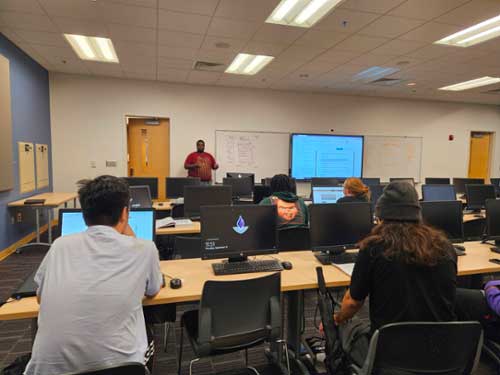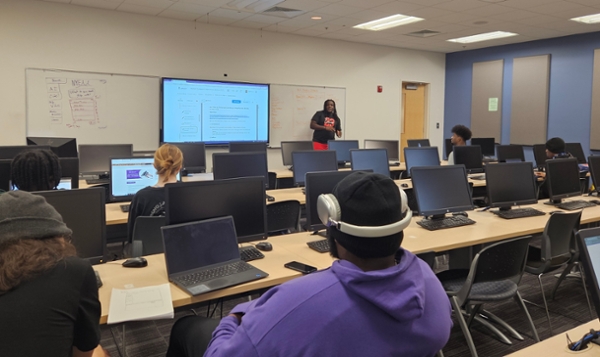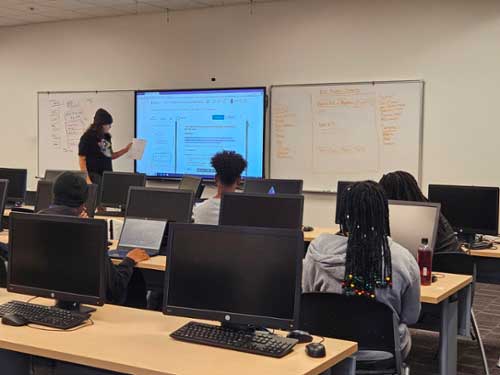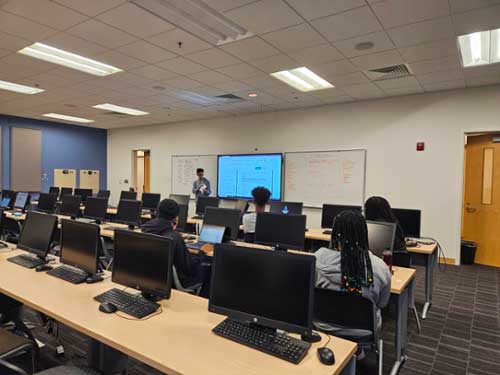MGA students in the
School of Computing’s ITEC 3235 Human and Computer Interaction course, under the guidance of Dr. Angela Munoz, embarked on two hands-on activities showcasing creativity and technical talents in Interactive Design.
On September 12, the class dove into the “AI-Enhanced Learning & Integrity Hub” activity. Here, students crafted low-fidelity prototypes for an educational platform designed to teach public school students about AI. The project's objectives were to enhance learning, promote academic integrity, and provide tools to prevent plagiarism, all while leveraging the benefits of AI technologies. Students applied the Design Sprint Framework, progressing through stages of Understand, Define, Ideate, Prototype, Test, and Present. They began with sketches and visual aids to conceptualize their ideas, which were then refined through peer feedback, bringing their prototypes to life.

On September 17, students ventured into User Experience Research with a nostalgic twist. They observed and gathered data as their classmates navigated the classic survival game, The Oregon Trail. This engaging activity involved practicing the Think-Aloud Protocol, capturing users’ verbalized thoughts during gameplay, and conducting usability testing to evaluate and enhance the game’s user experience.
"I am incredibly proud of our students for their ability to seamlessly integrate technical skills with practical research. Their dedication to innovative and effective solutions highlights the engaging and multifaceted nature of our Human and Computer Interaction course," stated Dr. Angela Munoz.



